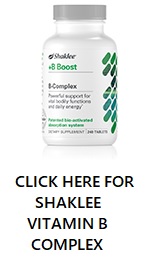 Vitamin B5 is another member of the broad, and very important, B-complex vitamins. Also known as Pantothenic Acid, Vitamin B5 is vital to almost all bodily functions. Vitamin B5 is one of several water soluble vitamins, and it is in abundant supply naturally.
Vitamin B5 is another member of the broad, and very important, B-complex vitamins. Also known as Pantothenic Acid, Vitamin B5 is vital to almost all bodily functions. Vitamin B5 is one of several water soluble vitamins, and it is in abundant supply naturally.
How does this all-important vitamin benefit the body?
Like the other members of the B-complex family, Vitamin B5 (Pantothenic Acid) has a major role in the process of metabolism which converts carbohydrates, fats and proteins into energy.
If you think about it, that, by itself, is a pretty big deal.
In addition to assisting with metabolism, Pantothenic Acid acts as an adrenal gland stimulant.
As these glands are stimulated, the production of adrenal hormones, and especially cortisone, increases. The vitamin is also believed to be capable of reducing fatigue and thereby enhancing stamina levels. Pantothenic Acid is crucial for the production of antibodies too. Many specialists agree that Vitamin B5 can help the body fight off the symptoms of stress, anxiety and even depression.
Vitamin B5 helps to lower bad cholesterol, and that helps reduce the risks involved with heart disease. It can help prevent arthritis or if it is already present pantothenic acid can help to alleviate the symptoms of this painful condition.
Hormone production depends on a steady supply of Vitamin B5 and so does the creation of healthy red blood cells and hemoglobin. Healthy skin and hair both are possible because of this important B vitamin. In fact, Pantothenic Acid has been used to treat acne and rosacea. It also helps wounds heal faster. Finally, research seems to show that this powerhouse can help slow the aging process.
Sources of Vitamin B5
Surprisingly, when you think about natural sources for other vitamins, fruits are not really a reliable source of Vitamin B5. On the other hand, pantothenic acid is found in almost all other unprocessed foods. The best sources of this vitamin are eggs, yeast, poultry, meat, fish, liver, milk, sunflower seeds, soya beans and bean flour, peas, peanuts, peanut butter, legumes, broccoli, collard greens, bananas, oranges, mushrooms, whole grain products and wheat germ.
One drawback that you should consider about pantothenic acid is that it breaks down easily in heat. Therefore, care must be taken during food preparation.
However, since this important vitamin is present in so many different foods, it is rare that people do not get enough from their diets. Therefore, guidelines as to recommended daily intake of Vitamin B5 don't exist. For most adults, 4 - 7 mg/day is sufficient. Getting as much as 10 mg/day or more isn't a problem since this vitamin is a water soluble vitamin. What the body doesn't need will simply be eliminated via the urine.
Symptoms of a Vitamin B5 Deficiency
While a Vitamin B5 deficiency is going to be rare, in the unlikely event of a Vitamin B5 deficiency, those affected may have the following symptoms: overall weakness, muscle cramping, insomnia and fatigue, intestinal problems such as water retention, nausea, vomiting or diarrhea, a low resistance to infection or a tingling sensation in the extremities.
Note that these symptoms could also indicate a deficiency in one of the other B-Complex vitamins. Since it is rare to have a Vitamin B5 deficiency, it may be necessary to investigate further to confirm, or rule out, that some other vitamin deficiency is causing these symptoms.

